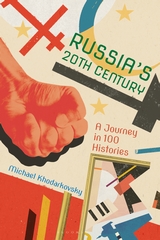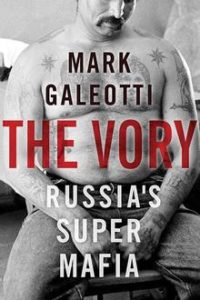 When the Ukrainian Orthodox Church broke from Russia’s, it dealt a blow to President Vladimir Putin’s efforts to portray his country as one people with a single identity, argues Michael Khodarkovsky, the author of the forthcoming book “Russia’s 20th Century: A Journey in 100 Histories.”
When the Ukrainian Orthodox Church broke from Russia’s, it dealt a blow to President Vladimir Putin’s efforts to portray his country as one people with a single identity, argues Michael Khodarkovsky, the author of the forthcoming book “Russia’s 20th Century: A Journey in 100 Histories.”
Putin’s Russia has reached a dead end, says Khodarkovsky, a professor of history at Loyola University Chicago.
“Seemingly unable to change course, Mr. Putin’s regime is desperately searching for an ideology in the dark corners of Russian history and theology,” he writes for The New York Times. “The fact that this ideology depends on creating a nationalist and anti-Western rhetoric alongside a vision of an Orthodox Christian Holy Russia should give anyone pause for serious concern.”
 While in Soviet times the Kremlin’s political police demonstrated a willingness to turn to criminals as assets or recruits when needed, the scale and approach seemingly adopted by Putin’s Russia has changed, notes Mark Galeotti, a senior associate fellow of RUSI and a senior non-resident fellow at the Institute of International Relations Prague.
While in Soviet times the Kremlin’s political police demonstrated a willingness to turn to criminals as assets or recruits when needed, the scale and approach seemingly adopted by Putin’s Russia has changed, notes Mark Galeotti, a senior associate fellow of RUSI and a senior non-resident fellow at the Institute of International Relations Prague.
Following the post-EuroMaidan worsening of relations with the West, the Kremlin has increasingly adopted what has been called a “mobilization state” approach, he writes in Gangster Geopolitics: The Kremlin’s Use of Criminals as Assets Abroad. Aware of the West’s greater economic, military and soft power, Russia has been turning to any available alternative foreign policy levers, from nationalist oligarchs to disruptive media outlets.
The gangsters are no exception, and instead of simply identifying unacceptable behaviors, as it did in the past, the Kremlin—occasionally—makes specific demands of those gangsters susceptible to its pressure, adds Galeotti, author of “The Vory: Russia’s Super Mafia” (Yale, 2018).
Putin is sometimes portrayed in the West as a great strategist with a long-term plan, but his record suggests that he is in reality a skilled tactician and a master of seizing an opportunity, note analysts Ian Bond and Igor Yurgens. The West’s current leaders cannot even boast that skill: more often than not, whether dealing with the economic and financial crisis or international conflicts, they have been reactive, slow and indecisive, they write in Putin’s last term Taking the long view, a paper for the Centre for European Reform.







